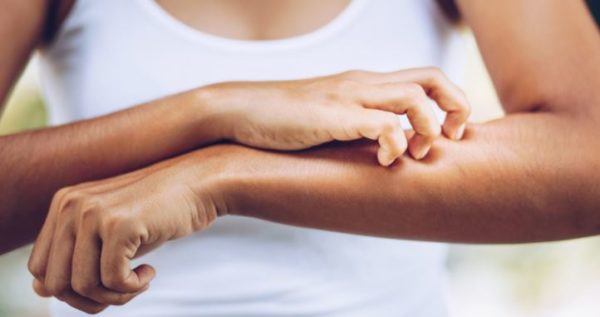Lifestyle
4 possible causes of unbearably skin itchy & how to stop it

The skin is a protective covering for the inside of the body. It is very delicate too, meaning that it’s easy for it to be penetrated by bacteria.
Itchy skin is a problem a lot of people seem to face regularly, and it can be very disturbing. However, itchy skin can be remedied.
There are different factors causing itchy skin. Let us take a look at 4 of them.
1. Dry skin
Dry skin is one of the most common causes of itchy skin. If you do not see any bright red bumps or notice a sudden change to your skin, dry skin is a likely cause. Environmental factors that can lead to dry skin include excessively hot or cold weather with low humidity, as well as washing too much.
2. Eczema
Eczema, or atopic dermatitis, is the most common cause of skin rash in children. According to the WHO, eczema affects 1 in 5 infants but only 1 in 50 adults. The cause has been linked to leakiness of the skin barrier. This causes the area to dry out, putting it at risk of irritation and inflammation. It is important to keep the skin moisturized.
3. Infections
Itching can also be related to parasites such as threadworms, insects such as bedbugs, mosquitoes, or lice. Fungal infections such as athlete’s foot can also cause itching between and around the toes.
3. Allergies
Irritation and allergic reactions can also cause itchy skin. Allergic contact dermatitis occurs when the skin comes into direct contact with an allergen. An allergic reaction can cause an itchy skin rash. Allergic reactions can be triggered by touching clothing, pets, chemicals, soaps, and substances such as poison ivy or cosmetics. Food allergies can also cause the skin to itch.
If you have an allergic reaction to a particular substance, one of the easiest things to do is to avoid that product or substance. Over-the-counter creams or medicated creams can help to clear up a rash.
Remedies for an itchy skin
1. Use a high-quality moisturizing cream on the skin and apply it at least, once or twice each day.
2. Apply an anti-itch cream, such as nonprescription hydrocortisone cream to the area to help relieve the itching.
3. Apply a cool, wet compress to the affected area.
4. Take a lukewarm bath.
5. Choose to use milder soaps without dyes or perfumes, and use of mild or unscented laundry detergent when washing.
6. Avoiding substances that irritate the skin or cause an allergic reaction such as nickel, jewelry, and wool.
It’s important to note that the most important self-care measure is to avoid scratching.






